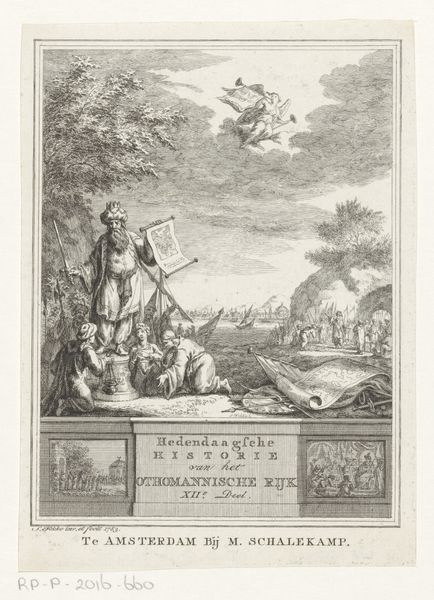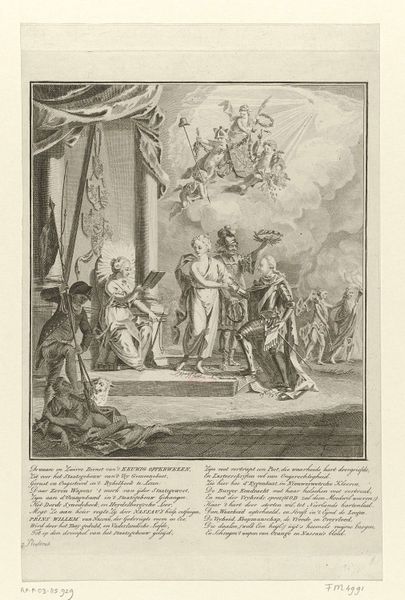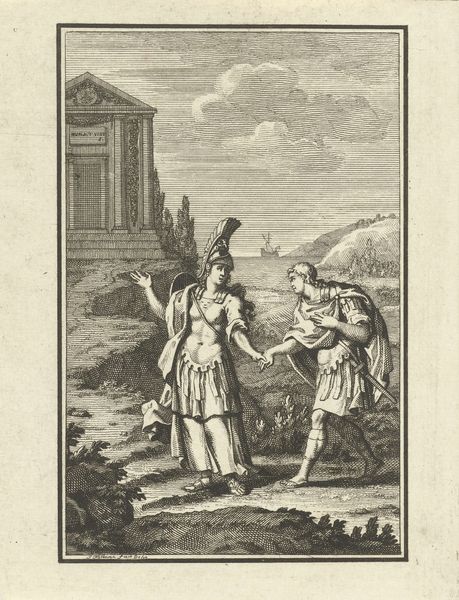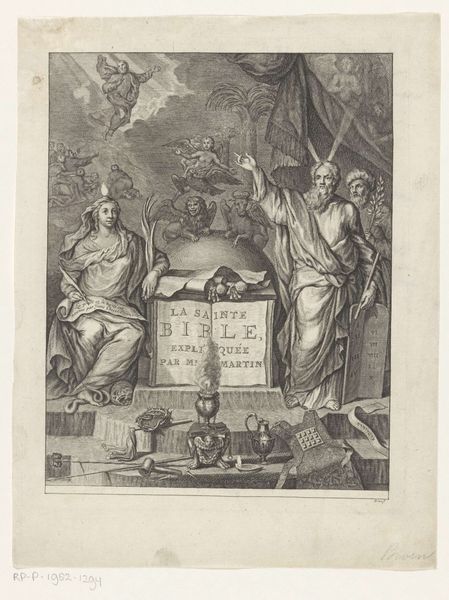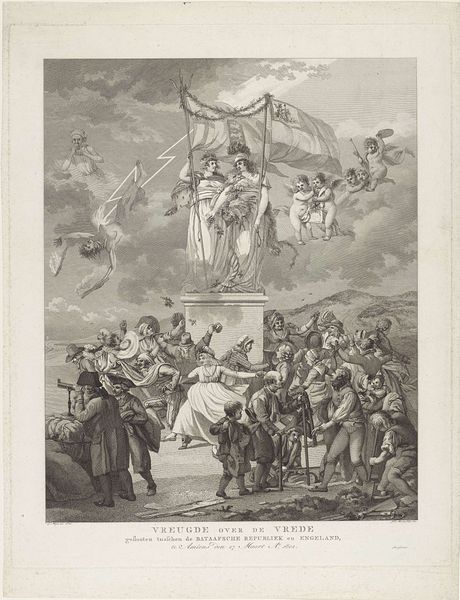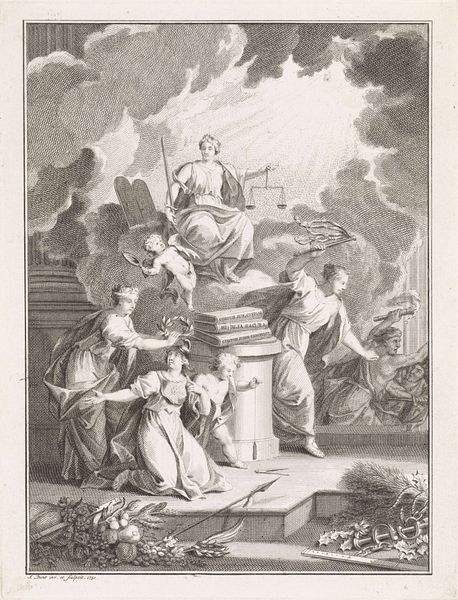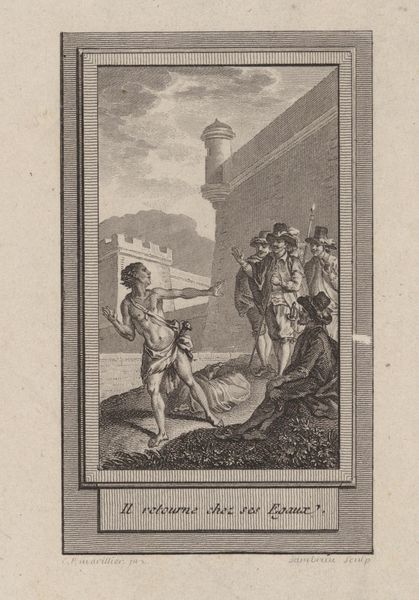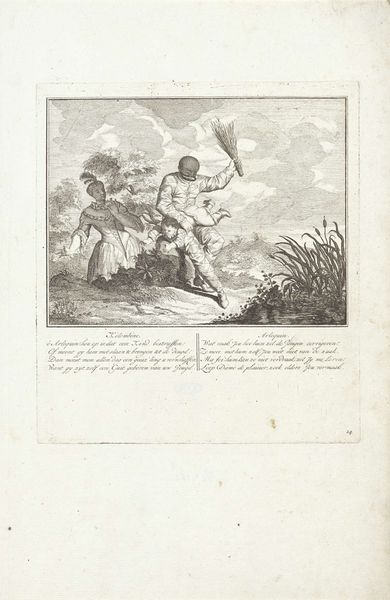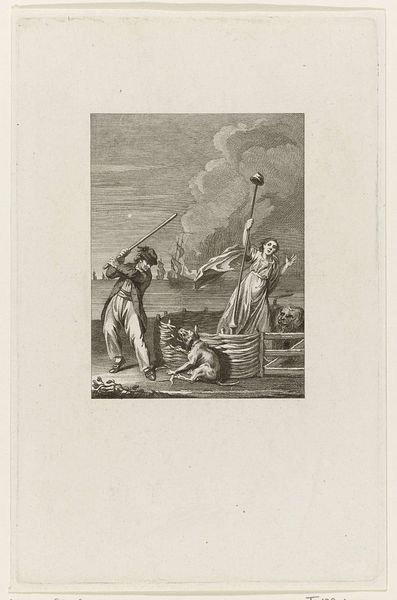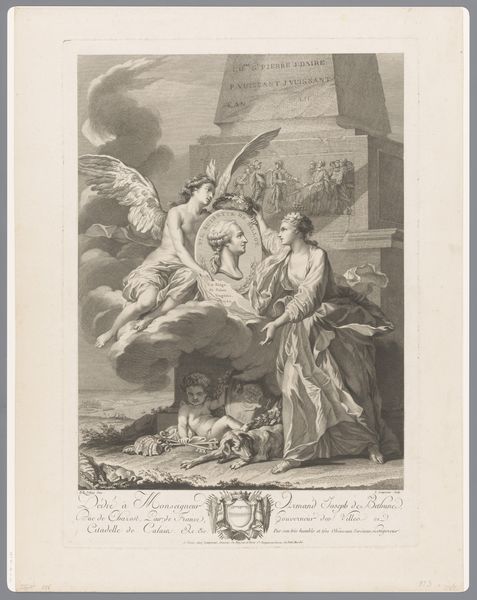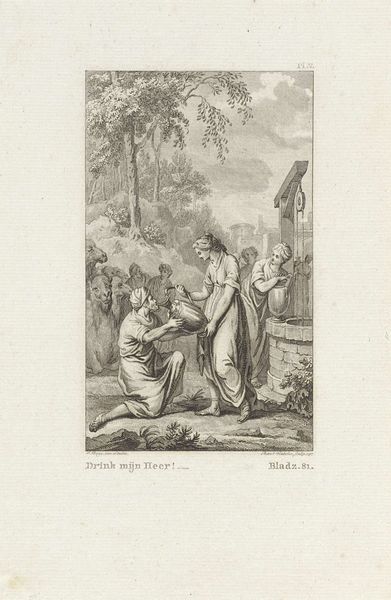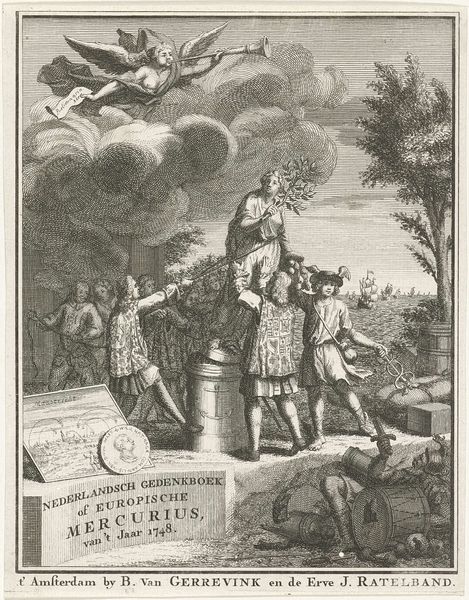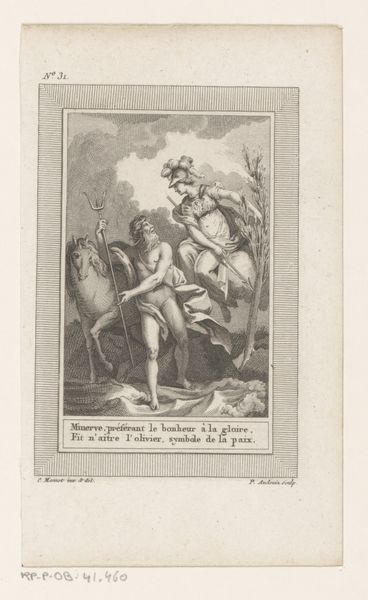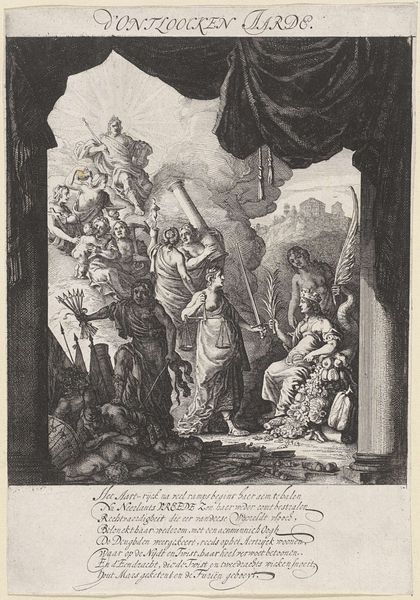
engraving
#
portrait
#
neoclacissism
#
allegory
#
geometric
#
history-painting
#
engraving
Dimensions: height 221 mm, width 133 mm
Copyright: Rijks Museum: Open Domain
This print, a portrait of Willem V, Prince of Orange-Nassau, was made in 1772 by Govert Kitsen. The printmaking processes from this period relied heavily on skilled labor and the careful manipulation of materials. Engraving was a meticulous process, involving the incising of lines into a metal plate, typically copper. This required a steady hand, specialized tools like burins and scrapers, and a deep understanding of how ink would be held and transferred to paper. The resulting print is a testament to the engraver's technical skill and artistic vision. The very qualities of the medium - the precision of line, the subtle gradations of tone - speak to the engraver's mastery. Consider the division of labor inherent in printmaking, from the production of paper and ink to the skilled craftsmanship of the engraver and the printing press operator. All of this reminds us that even seemingly "fine" art objects are deeply embedded in broader networks of production, consumption, and social relations.
Comments
No comments
Be the first to comment and join the conversation on the ultimate creative platform.
